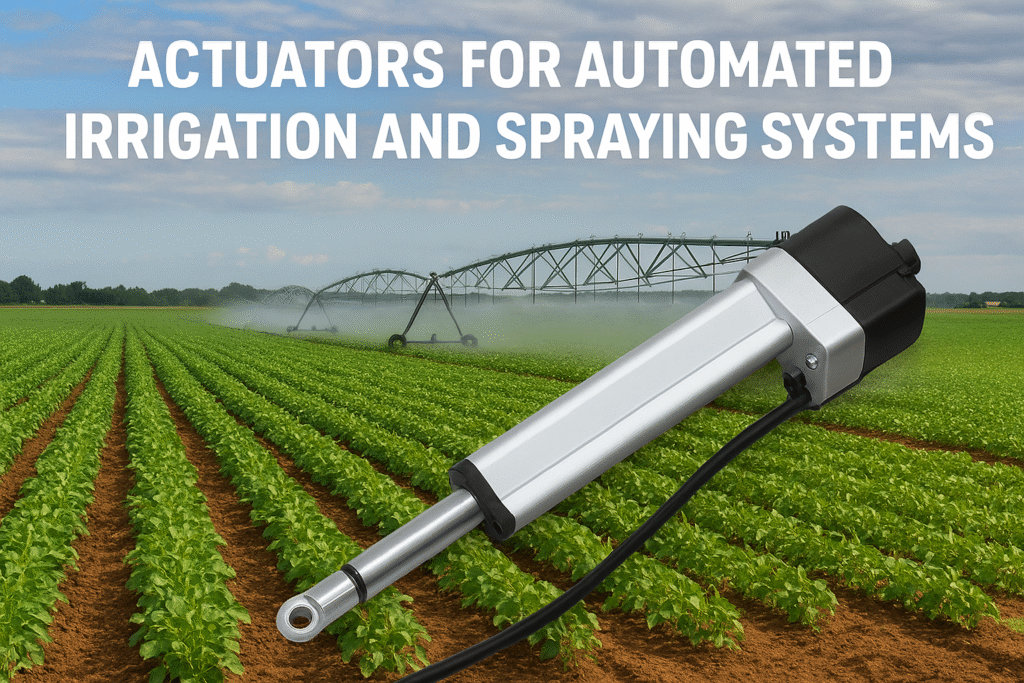Agriculture is evolving faster than ever. Farmers are adopting smart technologies to improve productivity, reduce labor, and use resources efficiently. One key technology that plays a major role in modern farming is the electric linear actuator. These actuators are now widely used in automated irrigation and spraying systems, helping farmers achieve precise and reliable control over their equipment.

Why Automation in Irrigation and Spraying?
Traditional irrigation and spraying methods often lead to water wastage, uneven spraying, and high labor costs. Automation ensures that water, fertilizers, and pesticides are delivered at the right place and in the right quantity. This not only improves crop health but also saves time and resources.
Role of Electric Linear Actuators
Electric linear actuators provide controlled linear motion—push and pull movement—that is essential in operating different parts of irrigation and spraying systems. Unlike hydraulic or manual systems, actuators are:
- Efficient – They only use power when in motion.
- Accurate – Ensuring precise opening/closing of valves and nozzles.
- Reliable – With minimal maintenance requirements.
- Clean – No fluids or leaks, safe for farming environments.
Applications in Irrigation and Spraying Systems
1. Automated Valves
Actuators are used to open and close irrigation valves at specific intervals. This allows farmers to schedule watering cycles without manual intervention.
2. Spray Boom Adjustment
In large farms, spraying machines need accurate boom positioning for even distribution of pesticides and fertilizers. Actuators make these adjustments automatically, even on uneven terrain.
3. Pivot and Drip Irrigation Systems
Electric actuators help in controlling pivot arms and drip lines, ensuring water reaches the crops exactly where needed, reducing waste.
4. Greenhouse Irrigation
In controlled environments like greenhouses, actuators adjust misters and sprinklers based on sensors, providing precise water delivery.
5. Fertilizer & Chemical Spraying
Actuators regulate spray nozzles, ensuring the right amount of fertilizers and chemicals are applied—improving efficiency and reducing costs.
Benefits to Farmers
- Water Conservation – Actuators help reduce wastage.
- Lower Labor Costs – Automated systems minimize manual work.
- Higher Yields – Precise irrigation and spraying improve crop health.
- Eco-Friendly Farming – Optimized use of water and chemicals protects the environment.
Future of Smart Farming with Actuators
As agriculture moves toward smart farming and IoT integration, actuators will play an even bigger role. By connecting with sensors and automated controllers, actuators can adjust irrigation and spraying in real-time, based on weather, soil moisture, and crop needs.
Conclusion: Electric linear actuators are transforming the way irrigation and spraying systems work. By enabling automation, they help farmers save water, reduce costs, and improve productivity—making farming smarter, greener, and more sustainable.

This is a fantastic resource for anyone.
Really interesting read!
Thank you sir